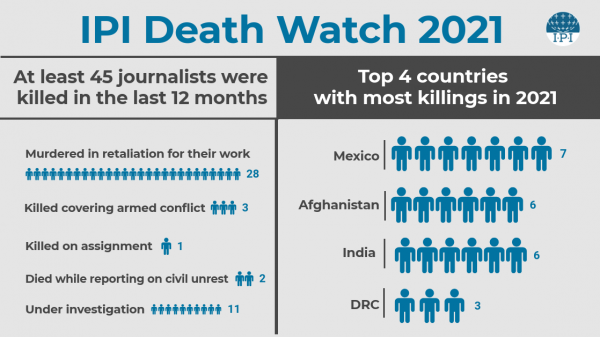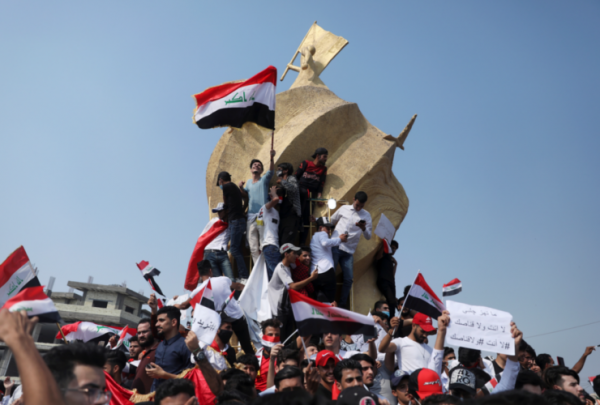The Honourable Donald H. Rumsfeld
Secretary of Defense
Office of the Secretary of Defense
1000 Defense Pentagon
Washington, DC 20301-1000
USA
Fax: +1-703-697 83 39
Vienna, 18 August 2003
Dear Mr. Secretary of Defense,
The International Press Institute (IPI), the global network of media executives, leading journalists and editors from over 115 countries, condemns in the strongest possible terms the shooting of a journalist by the U.S. military in Iraq.
According to information placed before IPI, on 17 August, award-winning Reuters journalist Mazen Dana was shot dead by a U.S. tank crew as he was filming outside the Abu Ghraib prison in western Baghdad. Dana had gone to the prison after it had been the subject of a mortar attack on the previous day which had killed six Iraqis and wounded 59 others.
Speaking of the Dana shooting, a spokesperson acting for the U.S. chairman of the Joint Chiefs of Staff, Navy Captain Frank Thorpe said, “Army soldiers engaged an individual they thought was aiming an RPG (Rocket Propelled Grenade Launcher) at them. It turned out to be a Reuters cameraman.”
However, Reuters soundman Nael al-Shyoukhi, who was with Dana at the time of the shooting, implied that the camera team were known to the U.S. military at the prison. Talking to Reuters about the incident which happened in daylight, Shyoukhi said he had asked a U.S. soldier near the prison if they could interview an officer but were denied permission. “They saw us and they knew about our identities and our mission.”
On the actual shooting itself, Shyoukhi commented, “After we filmed we went into the car and prepared to go when a convoy led by a tank arrived and Mazen stepped out of the car to film. I followed him and Mazen walked three to four metres. We were noted and seen clearly.” Dana was shot by a soldier on the lead tank shortly afterwards.
IPI is deeply concerned by the killing of Dana because it bears the hallmarks of an engagement policy which invites the allied military to shoot first and ask questions later. An engagement rule that, if continued, will only serve to increase the number of journalists killed in Iraq.
At a time when President Bush has declared the war in Iraq to be over, IPI fears that the current engagement rules have not evolved to reflect this change and that the death of Dana reinforce this viewpoint. Therefore, IPI would call on the U.S. military to remind their personnel that rules for engaging insurgents among a civilian population must by necessity be different to those of the battlefield.
The incident also raises a number of questions. IPI is particularly worried that there appeared to be no communication among military personnel as to the presence of the camera team and that the tank and soldier who engaged with Dana failed to properly identify the camera.
While IPI believes that there is a superficial likeness between a camera and an RPG, it is incumbent upon the soldiers involved in the engagement to make a proper identification with a high degree of certainty. Given the fact that tanks are equipped with telescopic sights, IPI finds it hard to appreciate why the soldier on top of the tank either made the decision or was delegated the decision to fire on Dana.
On this basis, IPI would invite the U.S. military to confirm who in fact made the decision to target Dana? How that decision was reached, and whether there was any further attempt made to confirm that identification?
Finally, IPI calls on the U.S. military to undertake a full and transparent inquiry into this incident. Moreover, when doing so, IPI would invite the U.S. military to concentrate on investigating the rules of engagement currently being used in Iraq, as well as communication procedures, to ensure that such incidents are avoided in the future.
We look forward to hearing from you.
Johann P. Fritz
Director


